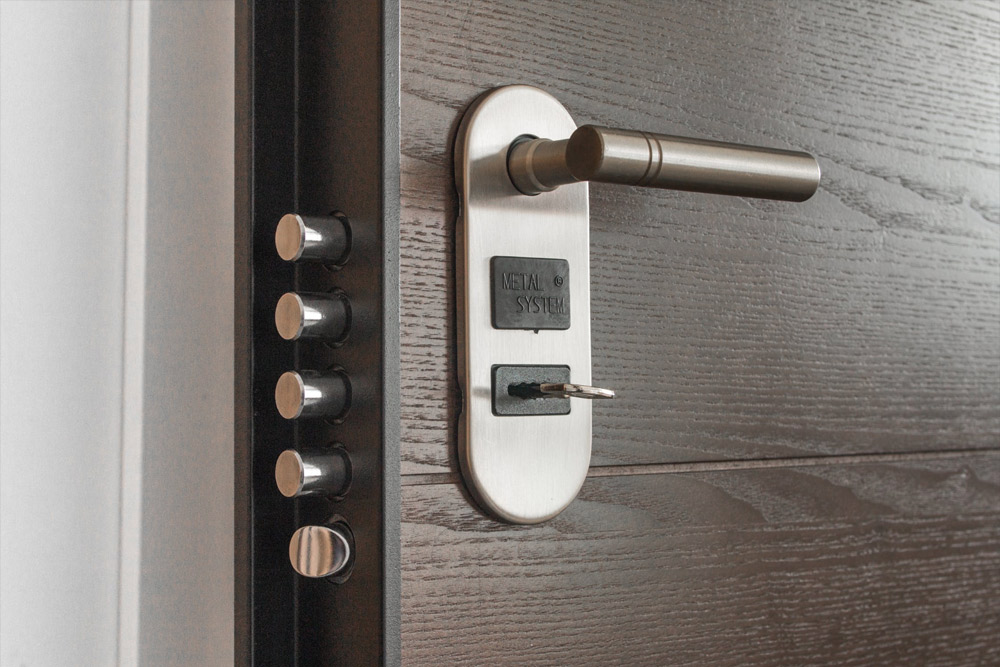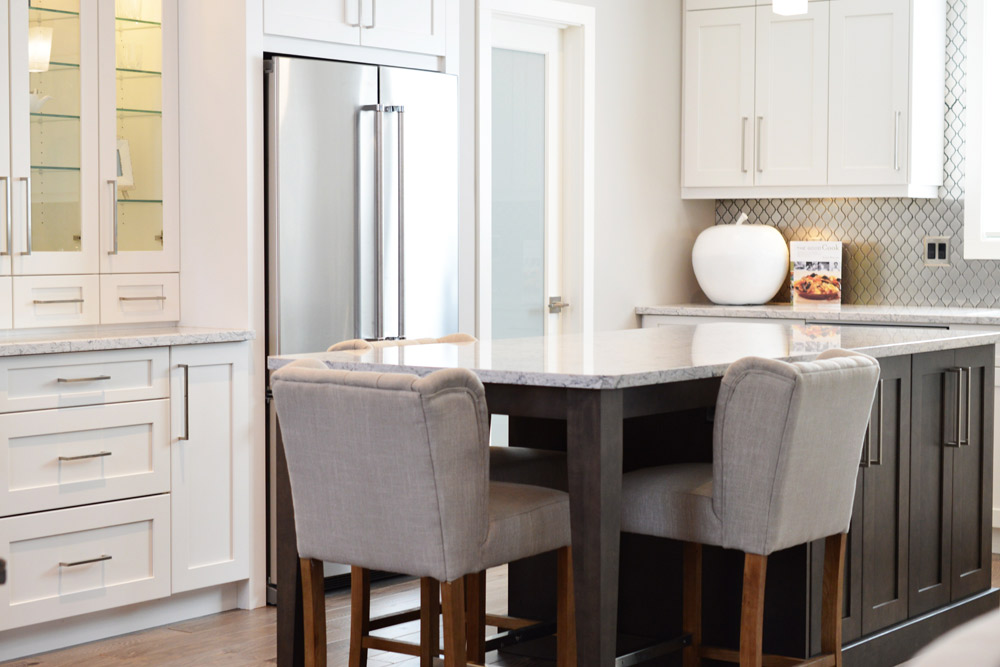Research reveals that condo security is one of the main concerns for people looking to purchase a condominium. It’s no surprise that residents place a high value on feeling safe and protected within their home.
Thankfully, there are solutions to improve condo security. Check out these key pointers to keep you, your loved ones, and your belongings out of harm’s way.
Should You Invest in Condo Building Security Systems?
If you want to maximize the security of your condo, consider investing in a building security system.
Here are just a few reasons why a condo building security system is worth your dime:
- Prevention– Studies have backed up the effectiveness of security systems, specifically surveillance cameras, suggesting that they indeed reduce the number of low-level crimes, including automobile break-ins, burglaries, and vandalism.
- Monitoring- Security systems provide residents with a constant eye on their property, allowing them to surveil people entering and leaving home as well as keep tabs on any suspicious activity.
- Peace of Mind– Security systems safeguard one’s home, providing residents greater defense for a better night’s rest or worry-free trips away from home.
Once you invest in a building security system, the next big decision involves choosing between traditional hardwired alarm systems or wireless systems.
If you’re looking for convenience, a wireless system may be your best bet. These systems provide simple installation and easy placement. The portability of wireless also makes moving your security system a breeze.
Traditional security systems are still a good choice if your primary concern is reliability. These hardwired systems experience glitches less frequently because they don’t rely on sensors that communicate through radio frequency. Just be sure to keep up with battery maintenance.
How to Understand a Condominium Security Camera Policy
Condominium buildings are often managed by Homeowner Associations (HOA’s) or condominium associations, which generally enforce a condominium security camera policy. The policies balance maintaining resident’s safety and respecting their privacy.
An individual has a reasonable expectation of privacy in his or her own home, meaning your board, neighbors, or association should not and cannot be monitoring you within your private space. However, there is not the same expectation of privacy in shared or common areas, such as the lobby, stairwells, elevator, and hallways.
To determine exactly what your condo’s security camera policy looks like, you’ll have to go directly to the source, your local HOA.
Each building has its own separate set of requirements, and authorization for anything in a condo, specifically security cameras, requires strict approval within the building’s by-laws and rules.
Some condominiums allow residents to install outdoor security cameras as long as they don’t violate one’s reasonable expectation of privacy, while other buildings only permit cameras within one’s private residence.
Once you’ve familiarized yourself with your building’s security camera policy, you’ll be ready for camera installation.
When setting up your security camera, make sure the camera is facing downward at an angle rather than directly in front of a door. This ensures that you don’t capture footage of the interior of a non-public area without consent, which can constitute a violation of privacy and potentially result in a lawsuit.
To protect your security cameras, keep them out up high so they’re out of easy reach. Nine-feet off the ground is generally a sufficient placement for cameras. However, you’ll want to make sure the camera remains visible to strangers to scare off potential intruders.
What’s the Best Security Camera for a Condo?
When it comes to maximizing condo security, choosing an optimal security camera is an important decision. With so many different cameras and new technology on the market, finding the best option may seem overwhelming.
Around 34 percent of burglars enter through the front door, so an outdoor camera to monitor the entrance and deter criminals is crucial. Indoor cameras are also a great addition to provide extra surveillance.
Make sure to choose a camera that provides high-quality and expansive coverage. Outdoor cameras need to be durable, water resistant, and out of reach.
For a premium security camera, condo residents should consider the Reolink Argus. This outdoor battery-powered, motion detecting security camera is great for monitoring your front door, as well as the inside of your condominium.
Reolink Argus provides top-notch, wireless technology to keep your condo extra secure, complete with instant app push notifications, as well as email and sound alerts when someone approaches your doors or entrances.
Why You Should Look for Reserved or Private Condo Parking
Many condominiums in Chicago offer reserved or private parking in a garage or outdoor lot; and you may not want to pass up this deal.
These exclusive parking spots provide a safer and more convenient alternative to street or public parking.
Condominium parking lots or garages often have security cameras in use, which can deter auto theft and vandalism, as well as record any potential criminal activity.
Private parking helps alleviate the stress that can come with parking in a city by guaranteeing a spot for your vehicle. So naturally, this amenity comes at a price. However, if safety is a priority, it may be worth the investment for your own reserved spot.
If you’re interested in reserving a parking spot at your condominium, you’ll have to reach out to your HOA.
Since parking proves to be a common challenge for homeowner associations, it’s also important to gain a good understanding of your condo’s parking policy.
How Can Your HOA Improve Security?
Optimization of HOA’s security should be ongoing. There are various precautions and steps HOA can take to ensure a safer space for residents, including quicker responses to threats or suspicious activity and advance security systems.
To gain insight on pressing security improvement needs in your community, HOA can conduct a comprehensive security assessment, either themselves or through a professional consultant.
This type of evaluation will provide multiple essential items including:
- The vulnerabilities and exposures on the property which either have led or can lead to security issues
- Effective solutions available to an HOA, as well as a planned course of action and anticipated costs
- A sense of confidence for the board and association management confidence in their means to achieve a safer community
Following the assessment, HOA will hopefully add security benefits to improve condo security and make the community a safer place to live. Depending on budget, these security benefits may include doorstaff, front door video systems, attached parking, and neighborhood watch programs.
If you’re eager to improve your HOA security, don’t be afraid to present the idea of a security assessment to your HOA board members. It’s highly likely they’d be willing to work with their budget to create a safer community and happier residents.
Security Tips for Single-Family Homes
If you’re not in the market for a condominium, we also have single-family home security tips.
During your search for the perfect single-family home, make sure to assess the security system before you purchase. Although you can always install a system on your own, finding a good security system already in place saves you time, money and stress.
At the tip of your fingers, you can access plenty of information regarding your potential neighborhood’s crime rate online. Areavibes is a great site to learn more about neighborhood safety and compare the crime rates in different areas.
Gated neighborhoods also offer extra security for single-family homes. These unique communities offer restricted access, safer streets, and strong neighborhood watch programs.
Once you find the perfect single-family home, you can further the security of your property by improving the visibility of your place, installing security mesh on the doors, and staying on top of keeping your garage and entrances secured.
In order to make your house feel like a home, you need to feel safe and well-protected. Make it a priority to maximize your condo’s security today!








